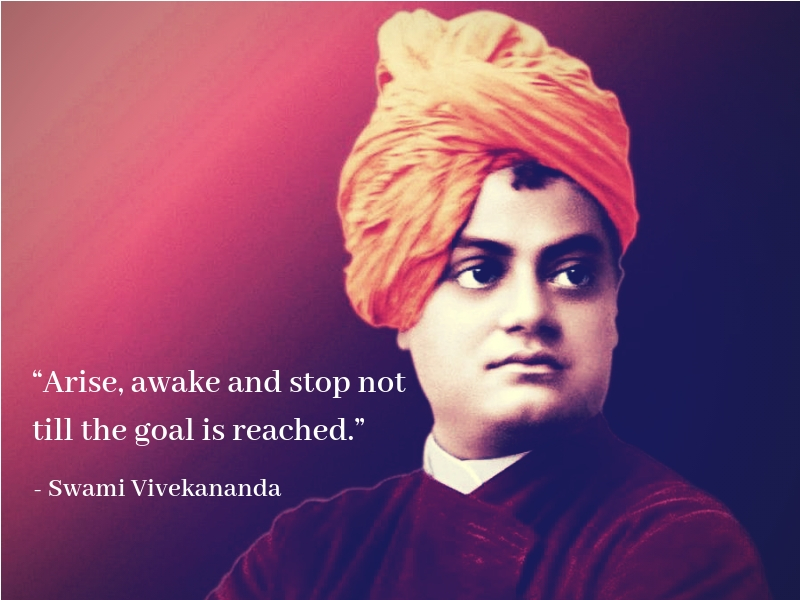
India’s great spiritual leader Swami Vivekananda’s contribution to spreading awareness about the Hindu religion and Vedanta in foreign shores cannot be overemphasised. He introduced Indian philosophies and held public and private lectures in the United States, England and Europe. A strong disciple of Ramakrishna Paramahamsa, Vivekananda, became a sanyasi at a young age and devoted his life for the betterment of humanity. On the birth anniversary of Swami Vivekananda which is commemorated as the National Youth Day in his honour we bring to you some aspects of Swami Vivekananda’s life:
Swami Vivekananda was born as Narendranath in a Bengali Kayastha family at his ancestral home in Gourmohan Mukherjee Street, in the current day Kolkata on 12 January 1863.
Narendranath’s father, Vishwanath Datta, was an attorney at the Calcutta High Court and mother Bhubaneswari Devi, was a pious housewife. Narendra’s grandfather Durgacharan, was a Sanskrit and Persian scholar who left his family and became a monk when he was 25 years old.
The progressive and the rational attitude of his father and the religious temperament of his mother nurtured his thinking and personality.
While growing up, Narendranath developed keen interest in spirituality and often used to meditate before the Hindu deities images.
The eight year-old eight, Narendranath enrolled at Ishwar Chandra Vidyasagar’s Metropolitan Institution, for schooling until his family moved to Raipur in 1877.
In 1879, after his return to Kolkata, Narendranath was the only student to have bagged the first-division marks in the Presidency College entrance examination.
In 1881, Narendranath passed the Fine Arts examination, and completed a Bachelor of Arts degree in 1884. He was also trained in Indian classical music, and keenly participated in physical exercise, sports and organised activities.
Narendranath was known for his ability at speed reading. He used to borrow books from the library in large volumes and used to return them the next day. The librarian doubted whether Swamiji really read them or not.
He became associated with Brahmo Samaj led by Keshab Chandra Sen, for some time since the Samaj recognised only in one God.
There was a phase in his life when he underwent spiritual crisis and questioned the existence of God.
In 1881, Narendranath first met Ramakrishna. After a conversation, Ramakrishna invited Narendranath to visit him at the Dakshineswar Temple, a few miles from Kolkata where he used to reside.
Though Narendranath did not accept Ramakrishna as his master and found him “mono maniac”, he eventually became one of closest people in his lives. Ramakrishna had great influence on Vivekananda and inspired him about spirituality.
Narendranath attained the name Swami Vivekananda after he became a sanyasi.
Vivekananda took part in the Parliament of the World’s Religions held in Chicago in 1893, where he delivered the most iconic speech introducing Hinduism to the western world.
Vivekananda came back to India in 1897 after delivering a series of lectures across the country to Kolkata and then founded the Ramakrishna Mission on May 1, 1897 at Belur Math near to Kolkata.
The goals of the Ramakrishna Mission were based on the ideals of Karma Yoga and its primary objective was to serve the poor and distressed. In pursuit of their goals, the Ramakrishna Mission undertook various forms of social service such as establishing and running schools, collages and hospitals, propagation of Vedanta through conference, work across the country. seminars and workshops, initiating relief and rehabilitation
Swami Vivekananda sought to achieve the divinity of the soul by undertaking selfless work, worship and mental discipline.
He predicted that he will not live till the age of 40. On July 4, 1902, after his chores, retired to his room in the evening and died during meditation. He is said to have attained ‘Mahasamadhi’ and the great saint was cremated on the banks of river Ganges.
Also read: Remembering Netaji Subhash Chandra Bose